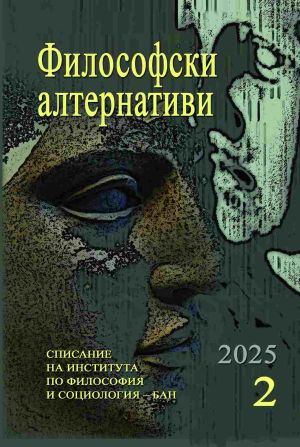Естетическата нагласа на Мориц Гайгер и нейните музикално-феноменологически измерения
Moritz Geiger’s Aesthetic Attitude and Its Musical-Phenomenological Dimensions
Author(s): Hari RangelovSubject(s): Philosophy, Fine Arts / Performing Arts, Music, Philosophical Traditions, Aesthetics, Phenomenology
Published by: Институт по философия и социология при БАН
Keywords: aesthetic phenomenology; aesthetic attitude; inner and outer concentration; value perception; music philosophy; musical nomos; transcendental musical synthesis; faculty of co-being
Summary/Abstract: This article examines the main concept in Moritz Geiger’s aesthetics – the aesthetic attitude – which, as an extension of the phenomenological concept attitude, describes the art-oriented (art-attuned) self. The very concept of attitude always refers to the intimate turning towards (orientation) either the world or art. At the same time, however, there exists another third attitude, which is capable of describing the intimacy of both the aesthetic and the world attitude, and which is inferred as a logical necessity without any evidence of what precisely this third attitude is. This indicates the existence of methodological ambiguity in contemporary music philosophy and musicology. The possibility of elucidating it – by revealing the musical-phenomenological dimensions of Geiger's aesthetics – is one of the conceptual horizons of this article, while the relations between the three attitudes are part of the conditions in which its theme unfolds. In order to clarify the aesthetic attitude, Geiger introduces additional concepts, namely outer concentration and value perception. Geiger analyses their modus operandi phenomenologically, and this makes it possible to reveal the musical-phenomenological dimensions of the aesthetic attitude, which directly links it to themes and ideas in musical-philosophical literature. Musical-philosophical concepts such as musical nomos, transcendental musical synthesis, and the faculty of co-being enable Geiger's ideas to be developed and placed into a concrete musical-philosophical perspective that sees the relationship between the self and music as fundamental and autonomous.
Journal: Философски алтернативи
- Issue Year: XXXIV/2025
- Issue No: 2
- Page Range: 38-55
- Page Count: 18
- Language: Bulgarian
- Content File-PDF

